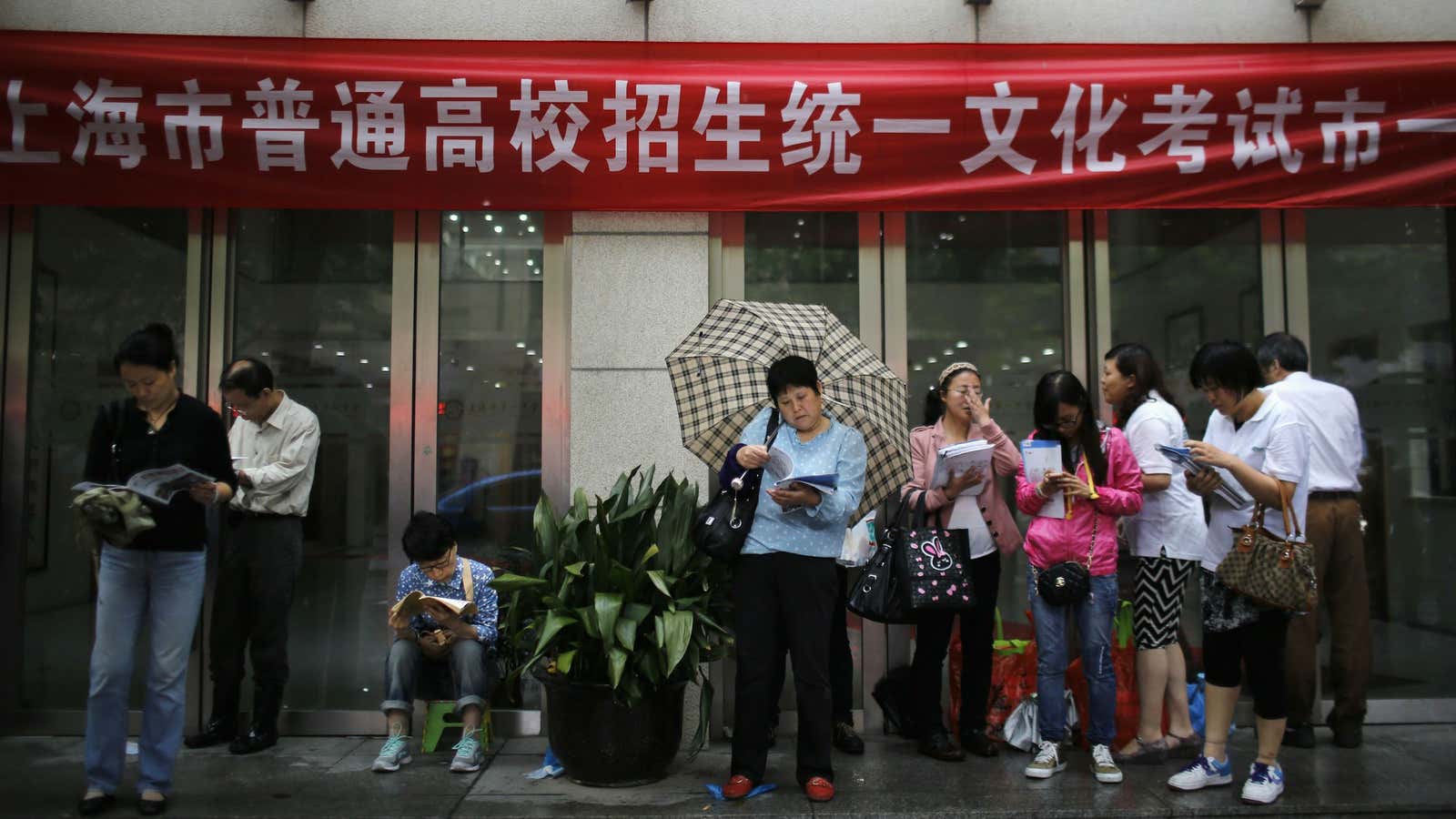At Benxi Senior Middle School, in China’s northeastern province of Liaoning, the easiest way to get into a good university is to buy a certificate that says you are a national level athlete. Twenty Benxi students were recently granted certificates for swimming, for example—even though the school doesn’t have a pool.
For up to 80,000 yuan (link in Chinese) ($13,000), a certificate in swimming or soccer, gives students an extra 10 points on the country’s standardized university entrance exam—enough to make or break admission into the school of their dreams.
Corruption has become an issue in China’s infamous university entrance exam system, a brutal test known as the gaokao that officials have long said is the most equitable way of determining whether, and where, a student goes to college. But over the past few weeks, allegations of parents buying “national second level athlete” certificates (a ranking just below Olympic-level) at Benxi have spread across the country as students receive their test scores.
Suspiciously, out of a little over 1,000 graduates of Benxi, 87 were awarded the certificates, almost equal to the total number awarded to students of five other nearby cities, according to state media, including the 20 who received swimming certificates.
In another suspicious incident, officials in a city in Fujian province reportedly gave students an extra 20 points in exchange for receiving land from their families (link in Chinese). To quell anger among students and families, Chinese officials have said they are investigating bonus points awarded to students in Liaoning as well as Henan provinces.
The latest controversy underlines the drawbacks of China’s admission process, which is meant to be based solely on merit and avoid the specter of corruption. Equal access to education is a hugely important issue in China as inequality has increased.
Bonus points, awarded to minority students as well as poorer students, are meant to level the playing field and encourage skills aside from rote memorization. Authorities are also trying to reform exam requirements that privilege students in bigger, wealthier cities. But the test has run into problems of fairness before. Officials at a top university in Beijing were caught taking bribes of up to one million yuan in 2012.
